
Copernical Team
Meet the scientist (sort of) spending a year on Mars
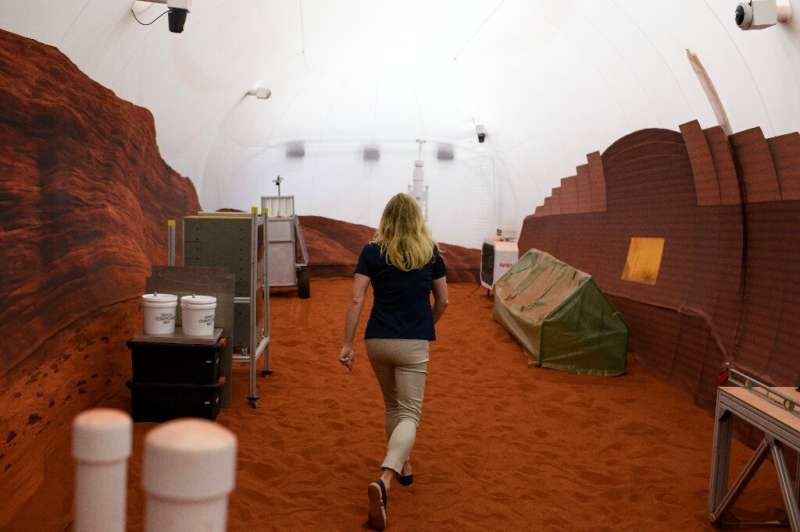
Living on Mars wasn't exactly a childhood dream for Canadian biologist Kelly Haston, though she'll soon spend a year preparing for just that.
"We are just going to pretend that we're there," the 52-year-old told AFP, summing up her participation in an exercise simulating a long stay on the Red Planet.
At the end of June, she will be one of the four volunteers stepping into a Martian habitat in Houston, Texas that will be their home for the next 12 months.
"It still sometimes seems a bit unreal to me," she laughs.
For NASA, which has carefully selected the participants, these long-term experiments make it possible to evaluate the behavior of a crew in an isolated and confined environment, ahead of a real mission in future.
Participants will face equipment failures and water limitations, the space agency has warned—as well as some "surprises," according to Haston.
Crash of private Japanese moon lander blamed on software, last-minute location switch
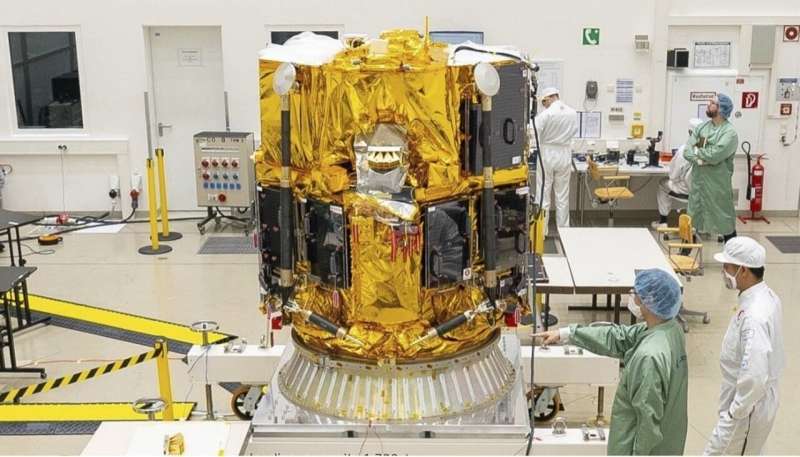
Over the moon: Dedication to lunar research pays off for China's Chang'e project
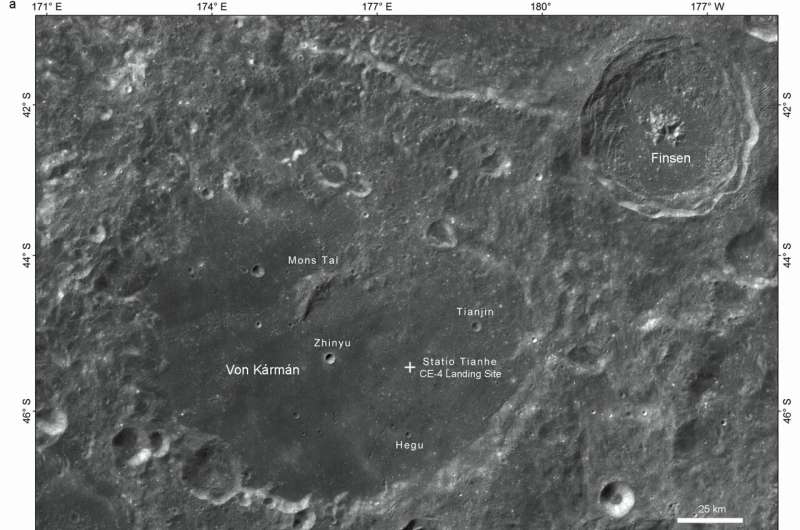
Since 2004, China has been pioneering many aspects of lunar exploration with the Chang'e project, of which all five missions were successful in obtaining new information about the moon.
China has been leading the advancement of lunar research and understanding with their Chang'e project since 2004 with no signs of slowing down. The information obtained from Chang'e missions has given humans a much deeper understanding of the moon, including the composition of its surface material, the moon's history and evolution, and mastering the three phases of unmanned lunar exploration: orbiting, landing, and returning. Gaining a more thorough understanding of the moon and its components can help with establishing research facilities on the moon to uncover more answers about Earth's only satellite.
Tree planting for the Huginn mission
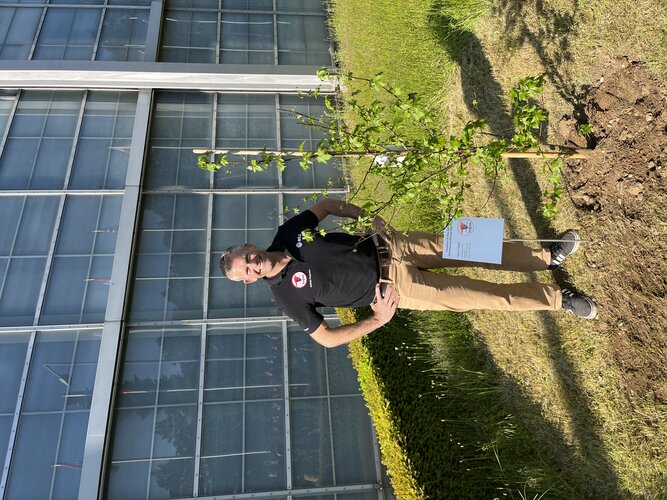 Image:
Tree planting for the Huginn mission
Image:
Tree planting for the Huginn mission Week in images: 22-26 May 2023

Week in images: 22-26 May 2023
Discover our week through the lens
Juice deployments complete: final form for Jupiter
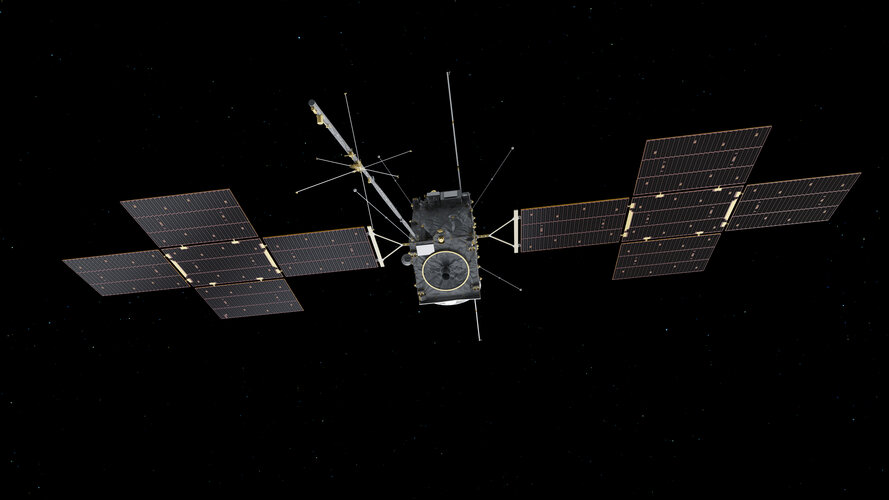
Flight controllers at ESA’s mission control centre in Germany have been busy this week, working with instrument teams on the final deployments to prepare ESA’s Jupiter Icy Moons Explorer (Juice) for exploring Jupiter.
Earth from Space: São Paulo, Brazil
 Image:
This radar image from Copernicus Sentinel-1 shows the city of São Paulo and part of the homonymous state in southeast Brazil.
Image:
This radar image from Copernicus Sentinel-1 shows the city of São Paulo and part of the homonymous state in southeast Brazil. NASA funds small business to advance tech for Space, Earth
 A new slate of funding from NASA will help small businesses develop technologies to advance space exploration, climate research, and more. In mid-April, NASA selected 112 proposals from 92 U.S. small businesses across 28 states to receive Phase II funding from the Small Business Innovation Research (SBIR) program, totaling approximately $98 million.
This program provides early-stage fundin
A new slate of funding from NASA will help small businesses develop technologies to advance space exploration, climate research, and more. In mid-April, NASA selected 112 proposals from 92 U.S. small businesses across 28 states to receive Phase II funding from the Small Business Innovation Research (SBIR) program, totaling approximately $98 million.
This program provides early-stage fundin Powerful Arab League communications satellite ready for night launch
 A powerful communication relay satellite for the 21-member Arab League is scheduled for launch Tuesday from Cape Canaveral Space Force Station in Florida. weather permitting.
SpaceX plans to carry ARABSAT BADR-8 satellite into a geosynchronous transfer orbit aboard a Falcon 9 rocket from Launch Complex 40, with a 127-minute window that opens at 11:25 p.m. EDT.
However, forecasters ha
A powerful communication relay satellite for the 21-member Arab League is scheduled for launch Tuesday from Cape Canaveral Space Force Station in Florida. weather permitting.
SpaceX plans to carry ARABSAT BADR-8 satellite into a geosynchronous transfer orbit aboard a Falcon 9 rocket from Launch Complex 40, with a 127-minute window that opens at 11:25 p.m. EDT.
However, forecasters ha Mainland, Macao put 2 satellites into orbit
 China launched two science satellites on Sunday afternoon jointly developed by scientists from the mainland and Macao, according to the China National Space Administration.
The Macao Science Satellite 1A and 1B were carried by a Long March 2C carrier rocket that lifted off at 4 pm from the Jiuquan Satellite Launch Center in northwestern China's Gobi Desert.
The launch marks the 474th
China launched two science satellites on Sunday afternoon jointly developed by scientists from the mainland and Macao, according to the China National Space Administration.
The Macao Science Satellite 1A and 1B were carried by a Long March 2C carrier rocket that lifted off at 4 pm from the Jiuquan Satellite Launch Center in northwestern China's Gobi Desert.
The launch marks the 474th 



































